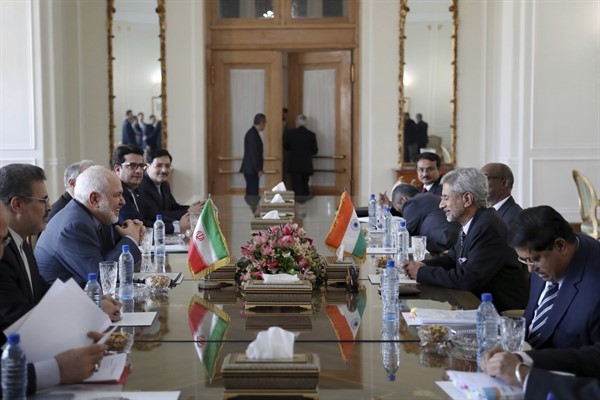Iran’s newly minted president, Ebrahim Raisi, declared during a meeting with Indian Foreign Minister Subrahmanyam Jaishankar earlier this month that “Iran and India can play a constructive and useful role in ensuring security in the region, especially Afghanistan.” Raisi went on to claim that “Tehran welcomes New Delhi’s role in establishment of security in Afghanistan.”
Jaishankar’s two-day visit to Iran to attend Raisi’s inauguration ceremony on Aug. 5 underscored New Delhi’s recent push to deepen engagement with Tehran. This was Jaishankar’s second visit to the country in less than a month. In between the two trips, he also held telephone calls with his outgoing Iranian counterpart, Javad Zarif.
While the two sides discussed many aspects of the bilateral relationship during these interactions, their main focus was on Afghanistan, where events have unfolded at a head-spinning pace. Jaishankar’s trip this month coincided with the beginning of the Taliban’s astonishing sweep across Afghanistan, capturing nearly all of the country’s provincial capitals in a matter of days. The blitz culminated in the insurgents entering Kabul over the weekend, quickly followed by the collapse of the Afghan government. The nature of the administration that will replace it—whether it is a repeat of the Taliban-led Islamic Emirate that ruled the country prior to the U.S. invasion in 2001 or a Taliban-dominated government formed after negotiations with other Afghan stakeholders—remains unclear for now.

